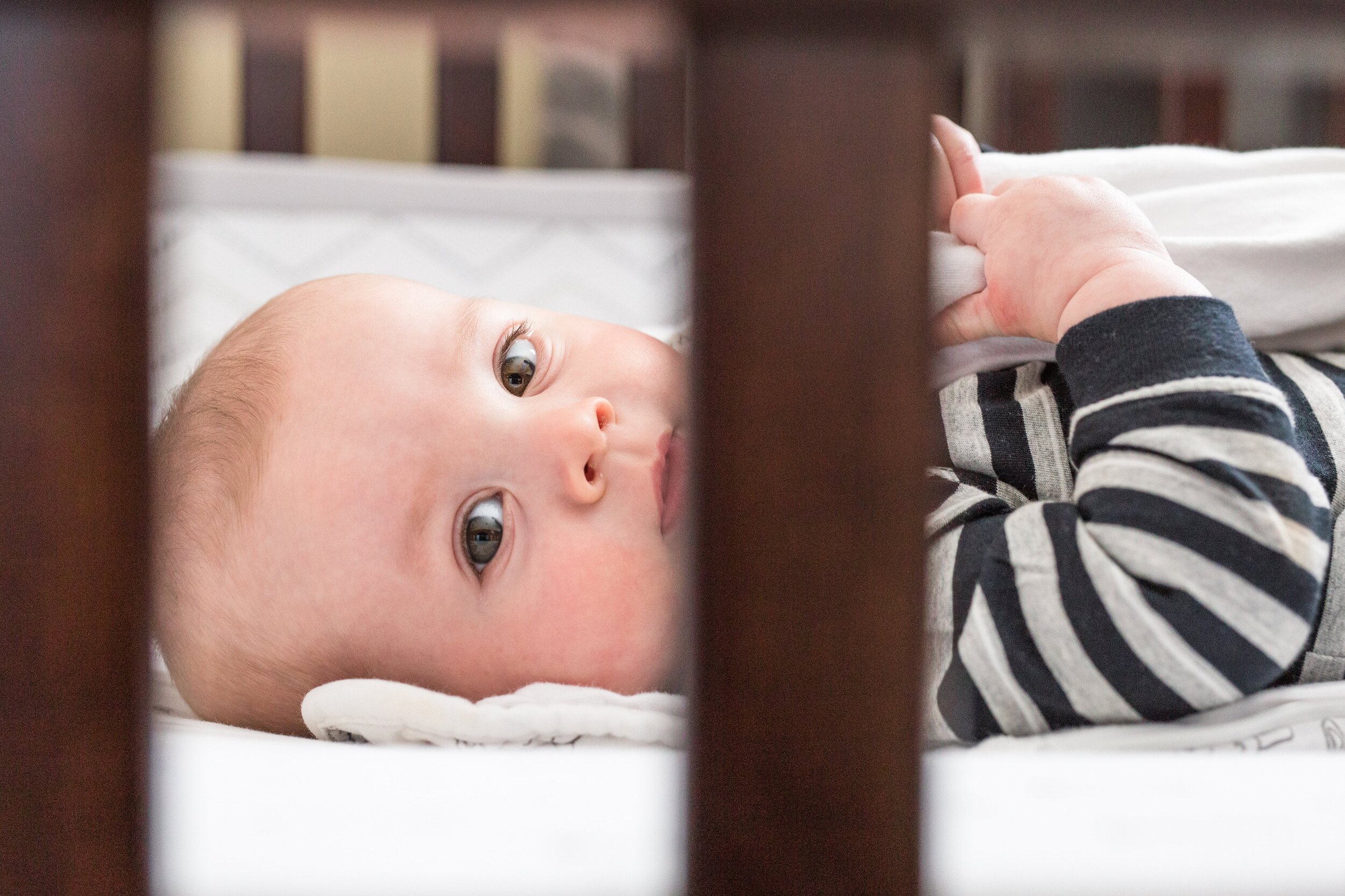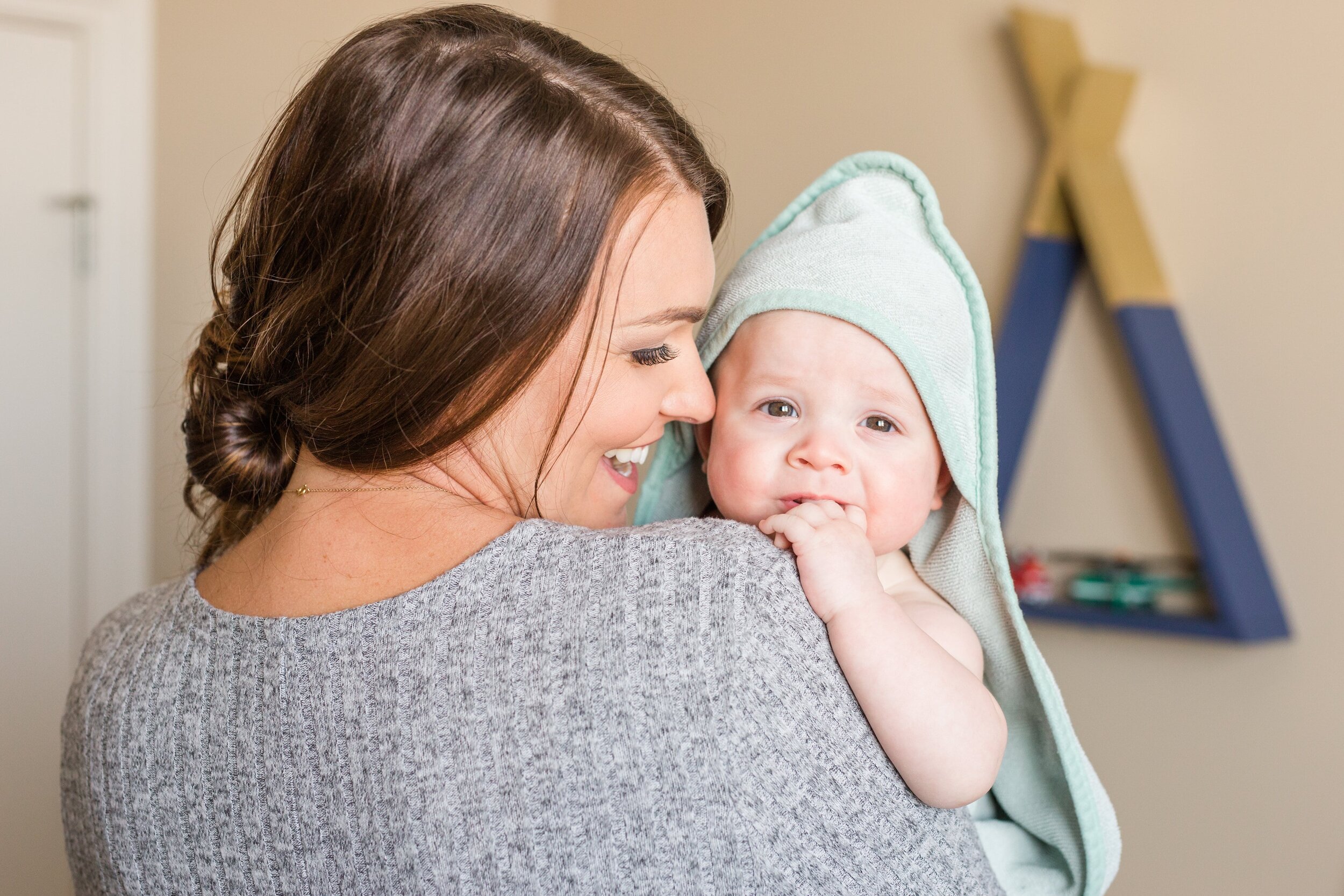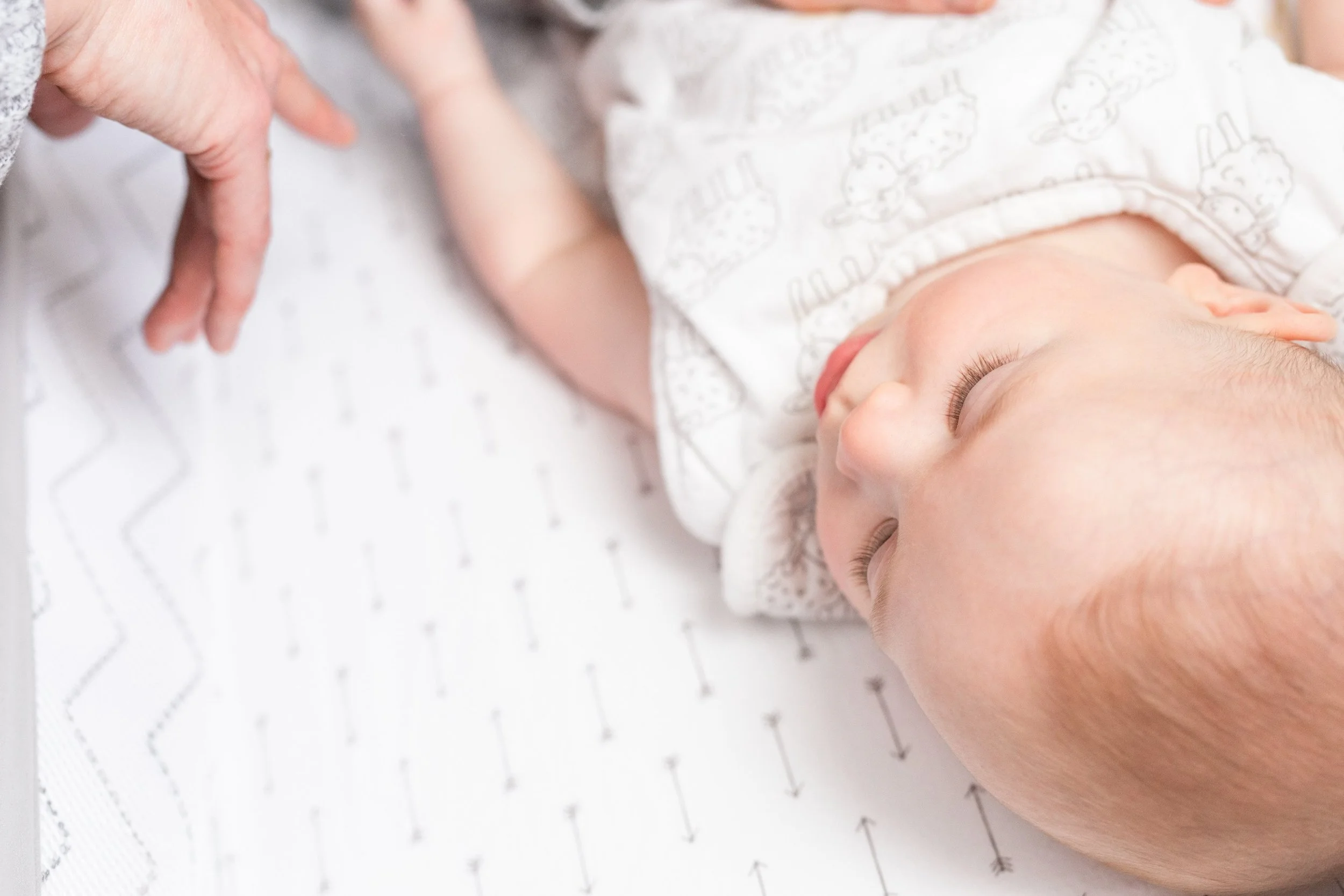Is Sleep As Important As Diet?
/Have you ever heard anyone say things like:
“Not sleeping is totally normal for a baby”
“Babies sleep when they want to, don’t force it”
“Just follow your baby’s lead, they know how much sleep they need”
I cringe a little bit when I hear statements like this. Not sleeping IS NOT NORMAL for a baby. I look back at pictures of my second before we sleep trained and in every picture he has huge bags under his eyes…at 4 months old. That’s not normal (I guess that’s what sleeping for 45 minutes at a time will do to a person - good thing there aren’t any pictures of me from that time).
Babies 0-3 months need between 16-18 hours of sleep a day. A DAY. Yes, that means they are awake for only 6-8 hours in a 24-hour period. Babies 4-9 months need between 13-15 hours of sleep and 9+ months is between 12-14. Does that prove to you that it’s not normal for a baby to not sleep? And that they actually don’t know how much sleep they need and when they need it (remember my 4-month-old with the bags under his eyes)?
Can you imagine this same language regarding a baby’s diet?
“Eating chocolate is totally normal for a baby”
“Kids will eat when they want to, don’t schedule mealtimes”
“Babies know what’s healthy to eat, just follow their lead”
If you said any of these things someone might peg you as a lunatic…yet it’s totally acceptable to let babies do “what they want” when it comes to sleep.
In my mind sleep and diet are around the same level of importance; they are also quite related.
A 2015 study in the Canadian Journal of Public Health found that longer sleep duration was associated with decreased risk for obesity, better diet quality, and higher levels of physical activity. Another study found similar results: sleep duration and diet quality is necessary for childhood obesity prevention. This 2018 study found insufficient sleep duration is associated with an unhealthy lifestyle profile. Finally, this study, used controlled measures and linked acute sleep deprivation and an increase in caloric intake in both children and adults. Let me break that down for you:
Sleep Deprivation = Higher Caloric Intake, Increased Chance of Obesity
Have I convinced you how important sleep is? I urge you to take your child’s sleep (and your own sleep) just as seriously as you take their (and your own) diet. Rarely does sleep ever “get better on its own”; rather, issues usually persist and begin to manifest themselves differently.
Giving your children the gift of sleep is one of the best things you can do for them.
Until next time,
Kirsten
















